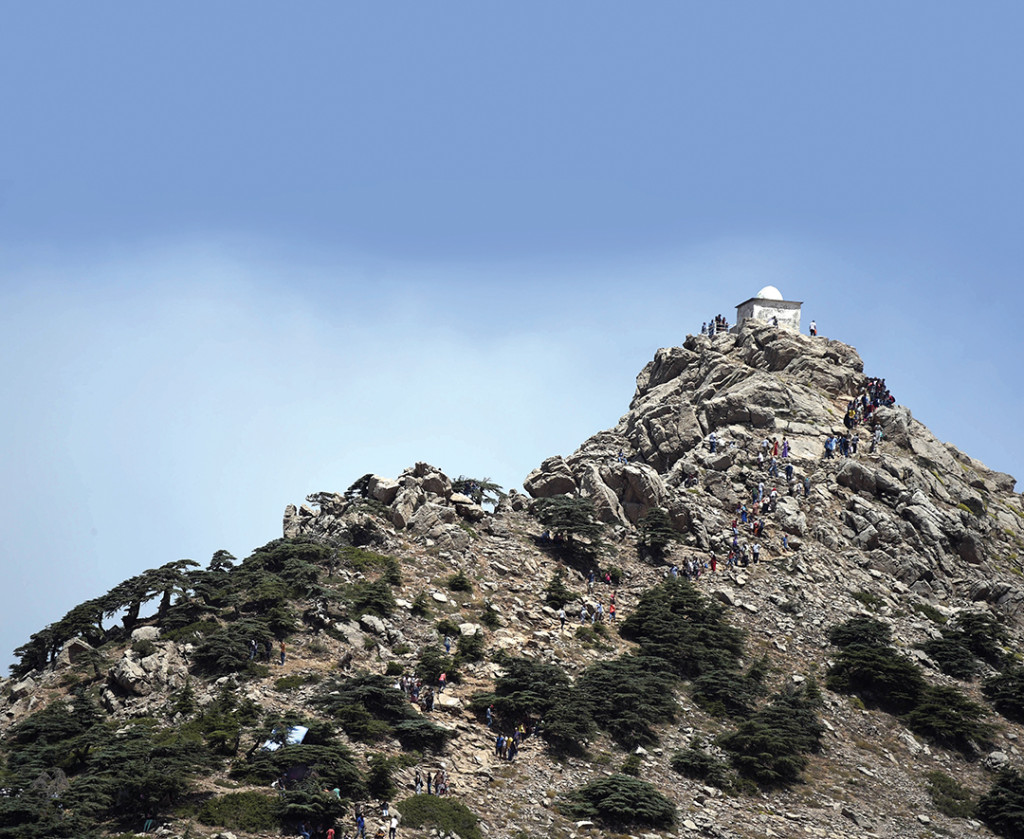In the heart of Algeria’s northern Kabylie region, Azro Nethor — the zenith prayer rock — towers 1,884 meters above sea level, at the end of a steep path in the Atlas Mountains.
On the rock’s summit sits El-Jammaa Oufella, which means “the mosque at the top.” It’s a small, stark place of worship. Inside, slim candles light the alcoves in its white walls.
For three successive Fridays each August, thousands of people from Kabylie and Algiers flock to the mountain peak, wheezing in the suffocating heat, for a pilgrimage rooted in a belief in the powers of holy men.
Azro Nethor is named after a legend that says an elderly wise man topped the mountain peak just as the sun reached its zenith and died there as he finished his midday prayer. The wise man, said to have received God’s blessing, has since been spotted in nearby villages.
His blessing has saved numerous local residents from grief, according to the legend, and even allowed a plate of couscous to hurtle all the way down the mountain without losing a single grain. Since then, a giant plate of couscous has been offered up to visitors at each pilgrimage. Pilgrims quench their thirst at a spring said to have purifying properties.
At the foot of the mountain, faith healers offer hope to those who consult them. Couples, young women and children place their heads under a piece of fabric to hear a prayer.
“Next year, you will come back here with a husband on your arm, and in two years’ time you will return with a child,” one healer promises a young woman, who bursts into a smile.
Women make up the majority of those who come to climb the mountain, some launching calls to children who have left for lives abroad, convinced that their voices will travel across the mountains and the nearby Mediterranean Sea.
Young people huddling in groups nearby do not believe in these tall tales. Many here say the annual pilgrimages were actually established as a pretext for matchmaking.
“The legend was made up by a feminist before his time, in revolt at the fate of young women in these mountains,” one explains. “They were prisoners inside their fathers’ homes and had little chance of marrying outside their tribe’s circle. With the start of the legend, they could finally come to Azro Nethor, where they could be seen by men from other villages and increase their chances of marrying.
“Today, we also come hoping to meet someone nice.”

